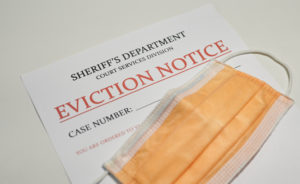Johnson and Johnson, a New Brunswick, New Jersey-based company said Tuesday that it is discontinuing its talc-based baby powder in the United States and Canada after thousands of lawsuits, alleged its powder caused cancer.
What is talc, and why is asbestos relevant?
Talcum powder is widely used by parents, because the mineral, keeps baby’s skin dry and prevents diaper rash. Talc is a mineral in clay, which is mined from underground deposits. These Talc mines and their minerals were later found to be contaminated with asbestos, a carcinogen considered unsafe at any level of exposure.
Talc is also used in many cosmetics, has been found in crayons, children’s toys, and is also used in food processing, supplements, pharmaceutical pills, and chewing gum. At one point, Talc was applied to surgical gloves and condoms until the 1990s, when the Food and Drug Administration banned manufacturers from using it because of health concerns.
Talcum Powder Lawsuits
Talcum powder lawsuits claim manufacturers knew their talc was contaminated by asbestos, and could cause mesothelioma and ovarian cancer, but concealed the dangers from their consumers and did nothing to inform the public. Lawsuits claim, Johnson & Johnson and other manufacturers failed to alert their consumers were at risk of developing ovarian cancer or mesothelioma, which is caused by exposure to asbestos-contamination, and found in their products. Deposition and trial testimony showed that between 1971 and 2003, Johnson & Johnson’s raw talc and talcum powder sometimes tested positive for small amounts of asbestos, and the company’s lawyers, doctors, and executives were concerned on how to address this problem while failing to disclose to regulators and consumers.
Other Companies involved in Talc lawsuits include, Vanderbilt Minerals, Colgate-Palmolive and Imerys Talc America, although Johnson & Johnson faces the majority of talc cancer claims. Other products involved in the litigation involve Johnson’s Baby Powder , Shower to Shower, Gold Bond No Mess Power Spray, Gold Bond Body Powder, and Gold Bond Extra Strength Body Powder.
Johnson and Johnson’s response?
This consumer and medical company giant, which makes everything from Tylenol to Aveeno lotions, has repeatedly denied the allegations. Johnson and Johnson attributed the decline “to changes in consumer habits and fueled by misinformation around the safety of the product and a constant barrage of litigation advertising,” although, it has faced lawsuits accusing it of hiding the cancer risks tied its talc-based version of baby powder since 2014. In that same year, The New York Times, uncovered a hundred pages of memos which showed that executives were worried about a potential government ban of talc, the safety of the product and a public backlash over Johnson’s Baby Powder.
Over the years, juries across the U.S. have hit the company with billions of dollars in damages over their handling of the product. Just last year, Johnson and Johnson recalled around 33,000 bottles of baby powder in the U.S. after the Food and Drug Administration said they found trace amounts of asbestos, in a bottle purchased online. J&J later said it retested its Johnson’s Baby Powder and found no signs of asbestos that prompted the recall.
Johnson and Johnson maintain their decision to discontinue their famous baby powder was not related to this litigation, but was made during a portfolio assessment related to Covid-19 in March. “We needed to skinny down” to free up space in manufacturing plants to allow for appropriate social distancing,” Kathleen Widmer, chairman of the company’s North America consumer unit stated. “We probably would have waited a couple of months otherwise. But we knew the business, which is already small in scale, would continue to decline.”
The corporate giant will continue to sell all its existing inventory through retailers until supplies run out.
Were you diagnosed with ovarian cancer or mesothelioma after using talcum powder?
People who used a cosmetic or a talc product and developed ovarian cancer or mesothelioma may be eligible to file a talcum powder lawsuit. In ovarian cancer lawsuits, women must have used talc-containing products (not cornstarch products) around the genital area daily or almost daily prior to diagnosis of ovarian cancer.
People who used talc-containing products, such as cosmetics, baby powder, or industrial product, such as clay, chalk, pottery, joint compounds, and developed mesothelioma may also eligible to file a lawsuit if they can trace diagnosis to products.
If you’ve developed ovarian cancer or mesothelioma after using talc-containing products, contact me immediately at 973-844-6222 for a free and confidential evaluation of your case. You can also submit a free legal consultation form online, or email me at jr@djd.law.

From sexual abuse matters to personal injury and workers compensation, Jessica brings a wealth of experience to her practice at D’Arcy Johnson Day. Her fluency in both English and Spanish enables her to help so many members of the community, as she focuses on sex assault and personal injury cases, work injuries, medical malpractice, immigration, criminal law, and municipal court proceedings among other areas of practice.











Comments for this article are closed.